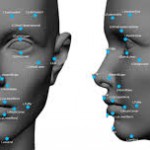
Facial Recognition "law has not caught up with technology"
Facial recognition technology has sparked a debate this week as a high-street shopper has taken his case to court to challenge the human rights associated with the software.
Ed Bridges, 36, from Cardiff has argued that his privacy and personal data has been breached as police have used facial recognition software to process an image of him taken in public.
This is the first legal challenge over the use of facial recognition technology and many critics have said that the law has not yet caught up with current technology. Dan Squires, who is representing Ed Bridges has stated: "You are able to capture, almost instantaneously, the biometric data of thousands of people. It has profound consequences for privacy and data protection rights, and the legal framework which currently applies to its use by the police does not ensure those rights are sufficiently protected."
South Wales Police, who have been using the technology since 2017, have defended the tools but have not commented on the case.
Mr Bridges has argued that he had a reasonable expectation that his personal data and privacy would not be invaded without his consent – as he was not suspected of a crime or any wrongdoing.
His lawyers argue that using facial recognition to process his biometric data breaches Article 8 of the Human Rights Act and the Data Protection Act. "It is just like taking people's DNA or fingerprints, without their knowledge or their consent," said Megan Goulding, a lawyer from the civil liberties group Liberty which is supporting Mr Bridges.
This is the first challenge to facial recognition and marks a landmark for the judicial review. Currently, unlike DNA or fingerprints, there is no specific regulation regarding how police use facial recognition or manage the data gathered.
This case will set precedence and could inform how the police use this software in the future.
Whitestone Solicitors
Rochdale
0800 810 1010
Get in touch
with your query or requirements
Rochdale Solicitors
If you are looking for down-to-earth solicitors who speak your language then look no further.
We are experts in accident compensation claims, commercial property matters, conveyancing, divorce, family law, wills & probate and immigration.
Contact our team today to see how we can help.
Contact
Whitestone Solicitors,
2 West Street,
Rochdale,
Lancashire,
OL16 2EN
0800 8101010
2 West Street,
Rochdale,
Lancashire,
OL16 2EN
0800 8101010





